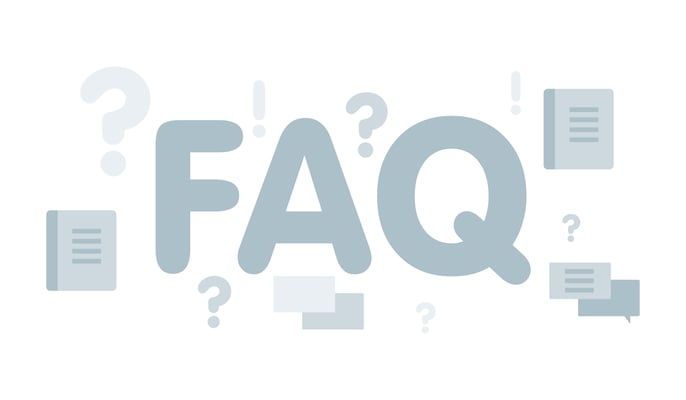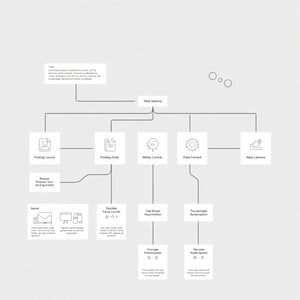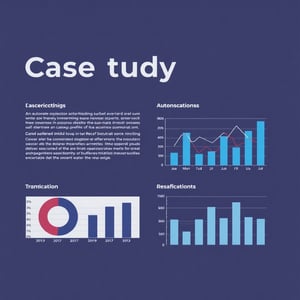
Frequently Asked Questions
Everything you need to know about our automation services, processes, and training.

Our Services
Questions about our automation capabilities and offerings
Process & Methodology
How we work with clients and implement solutions
Training & Support
Details about knowledge transfer and ongoing assistance
Results & ROI
Value and outcomes from automation implementation
Service & Platform Questions
We're platform-agnostic and work with all major automation tools including:
- Zapier - Great for quick SaaS integrations and simplicity
- Make (formerly Integromat) - Powerful for complex logic and data manipulation
- Pabbly Connect - Cost-effective for high-volume operations
- n8n - Open-source option with self-hosting capabilities
- Custom solutions - For specialized requirements
We select the right platform based on your specific needs, volume requirements, security considerations, and budget constraints.
Yes, we specialize in connecting legacy systems through multiple approaches:
- Custom API integrations for systems with available APIs
- Middleware solutions to bridge incompatible systems
- Database connectors for direct data access when appropriate
- Screen scraping and RPA for systems without APIs
- CSV/data file import/export automation for offline systems
Our team has extensive experience with ERP systems, custom databases, and proprietary platforms that don't have native integration capabilities.
We can automate processes across all business departments:
- Sales: Lead routing, quote generation, contract processing
- Marketing: Campaign tracking, lead scoring, content scheduling
- Operations: Order processing, inventory updates, logistics coordination
- Finance: Invoice generation, payment reconciliation, expense processing
- HR: Applicant tracking, onboarding workflows, time-off management
- Customer Service: Ticket routing, satisfaction surveys, follow-ups
Our heart lies with professional services and service based companies; If a process is repetitive, rule-based, and currently requires manual intervention, it's likely a good candidate for automation.
Absolutely. All automations we build are 100% owned by your company. Our standard agreements include:
- Full intellectual property rights to all custom workflows
- Complete documentation of all automation processes
- Admin access to all platforms and systems
- Source code for any custom components
- Knowledge transfer to ensure your team understands the implementation
We can also provide ongoing support and management if desired, but you maintain full ownership and control. Any relevant licenses for the software and workflows we create will be transferred from BPAV to client once our invoice is paid in full.
Process & Implementation Questions
Our implementation follows a structured methodology:
1. Discovery & Assessment
- Process mapping workshops
- System inventory and integration assessment
- ROI calculation and prioritization
2. Design & Architecture
- Detailed workflow diagrams
- Platform selection and configuration planning
- Error handling and recovery design
3. Build & Test
- Iterative development with client feedback
- Comprehensive testing across scenarios
- Performance optimization
4. Deploy & Train
- Phased implementation to minimize disruption
- Team training and knowledge transfer
- Documentation delivery
5. Monitor & Evolve
- Ongoing performance monitoring
- Continuous improvement cycles
- Adaptation to changing business needs
Implementation timelines vary based on complexity, but here are typical ranges:
- Simple Automations
1-2 weeks
Basic workflows with standard integrations between common platforms. - Moderate Complexity
3-6 weeks
Multi-step processes with conditional logic and some custom elements. - Enterprise Solutions
2-4 months
Cross-departmental systems with custom APIs and complex business logic.
Factors that influence timeline include:
- Number of systems being integrated
- Availability of APIs or integration points
- Complexity of business logic and conditions
- Data migration requirements
- Client availability for feedback and testing
We take data security extremely seriously and implement multiple safeguards:
- Data Protection: We follow data minimization principles, only processing the data necessary for the automation
- Encryption: All data in transit is encrypted using industry-standard protocols
- Access Controls: Strict permission systems to limit data access to authorized personnel only
- Compliance: We design automations to meet GDPR, CCPA, HIPAA, and other regulatory requirements as needed
- Audit Trails: Comprehensive logging of all system activities for accountability
- Risk Assessments: Regular security reviews of all automation implementations
We're also Cyber Essentials certified and can work with your security team to ensure all automations meet your internal security policies.
Training & Support Questions
We offer comprehensive training tailored to different roles within your organization:
For End Users
- How to interact with automated processes
- Troubleshooting common issues
- Best practices for data entry and system interaction
For System Administrators
- Monitoring automation performance
- Managing user access and permissions
- Basic maintenance and updates
- Error resolution procedures
For Technical Teams
- Platform-specific development skills
- Advanced troubleshooting techniques
- Creating and modifying workflows
- Integration best practices
Training is delivered through a combination of:
- Live workshop sessions (in-person or virtual)
- Recorded video tutorials
- Comprehensive documentation
- Hands-on exercises and practice scenarios
We offer flexible support options to match your needs, all of our support packages are completely customised. Below are a few examples of support packages we can offer;
Basic Support
- Email support
- Response within 48 hours
- Bug fixes for implementation issues
- 45 days post-implementation
Standard Support
- Email and phone support
- Response within 24 hours
- Monthly maintenance checks
- Minor enhancements
Premium Support
- 24/7 emergency support
- Dedicated account manager
- Proactive monitoring
- Quarterly strategy reviews
- Ongoing optimization
All support plans include:
- Access to our knowledge base and documentation
- Platform update assistance
- Integration maintenance when APIs change
We design our automations with resilience in mind, but when issues occur:
Proactive Monitoring
Our automations include monitoring and alerting systems that can detect failures before they impact your business. This includes:
- Error detection and notification
- Performance monitoring
- Data validation checks
Fallback Mechanisms
We implement safety measures such as:
- Retry logic for transient failures
- Error queues to prevent data loss
- Manual intervention points for critical decisions
Resolution Process
When an issue is detected:
- Immediate notification to the appropriate team
- Issue diagnosis and impact assessment
- Implementation of fix or workaround
- Root cause analysis to prevent recurrence
Support response times vary by plan, but we prioritize issues that impact critical business operations.
Results & ROI Questions
We establish clear metrics at the beginning of each project and track them throughout implementation:
Efficiency Metrics
- Time saved per process
- Volume of automated transactions
- Error reduction rates
- Processing speed improvements
Financial Metrics
- Labor cost savings
- Revenue impact
- Return on investment (ROI)
- Cost per transaction
Quality Metrics
- Accuracy rates
- Compliance adherence
- Data consistency
- Exception rates
Business Impact
- Customer satisfaction improvements
- Employee satisfaction
- Business scalability
- Strategic resource reallocation
We can provide regular reporting on these metrics and work with you to continuously optimize performance.
ROI varies by process and organization, but workflows we develop usually allow our clients to typically see:
Time Savings
70-90% reduction in manual processing time for automated tasks
Cost Reduction
40-60% decrease in operational costs for automated processes
Accuracy Improvement
90%+ reduction in human error rates
Payback Period
Typical ROI realized within 3-9 months of implementation
During our initial assessment, we'll provide a detailed ROI projection specific to your processes and business context.
Still Have Questions?
Our automation experts are ready to help you find the right solution for your business.
Related Resources

Learn the fundamentals of identifying, mapping, and automating business processes.

Join our experts as they discuss how to quantify the impact of your automation initiatives.

See how we helped reduce processing time by 85% and eliminated billing errors.

